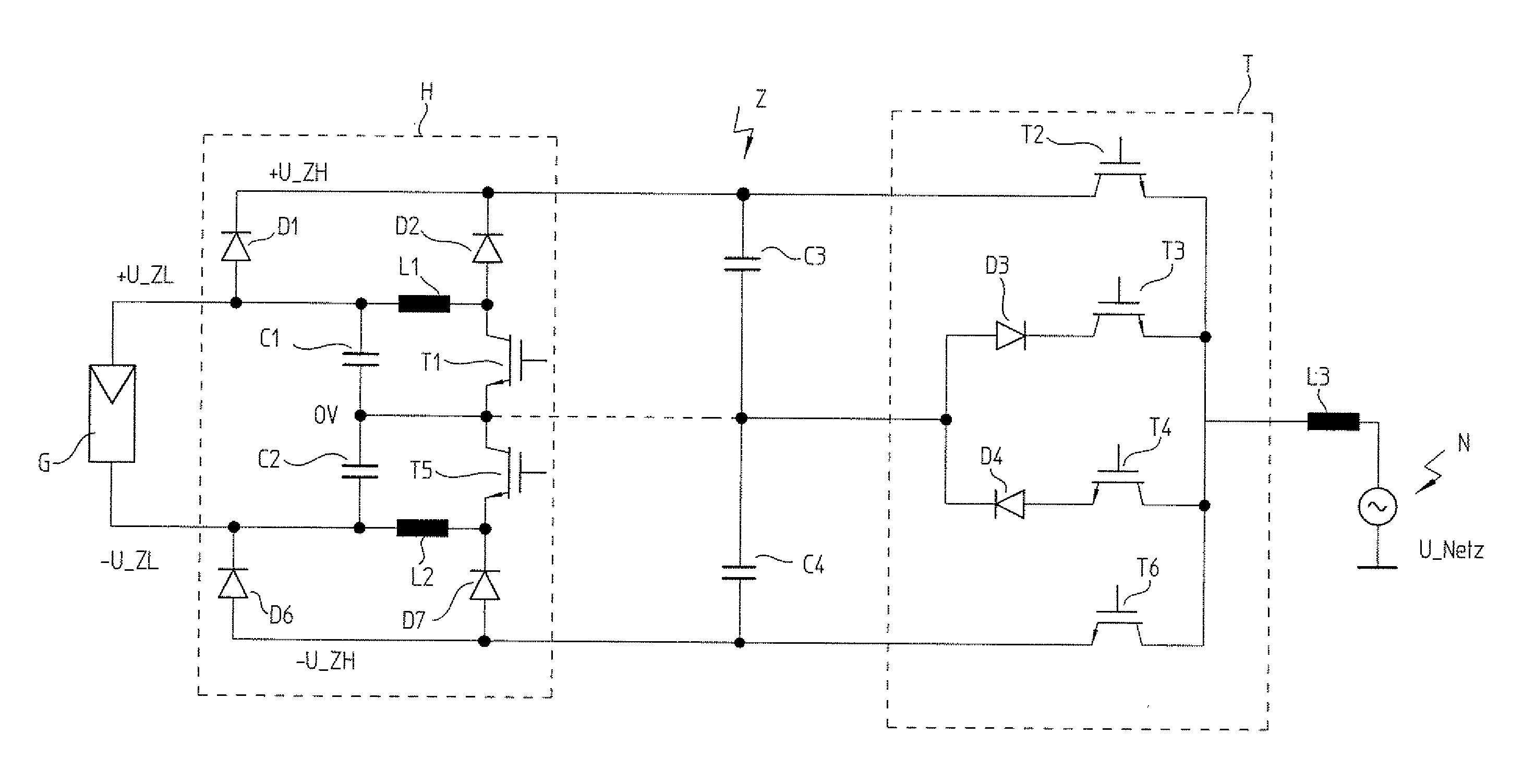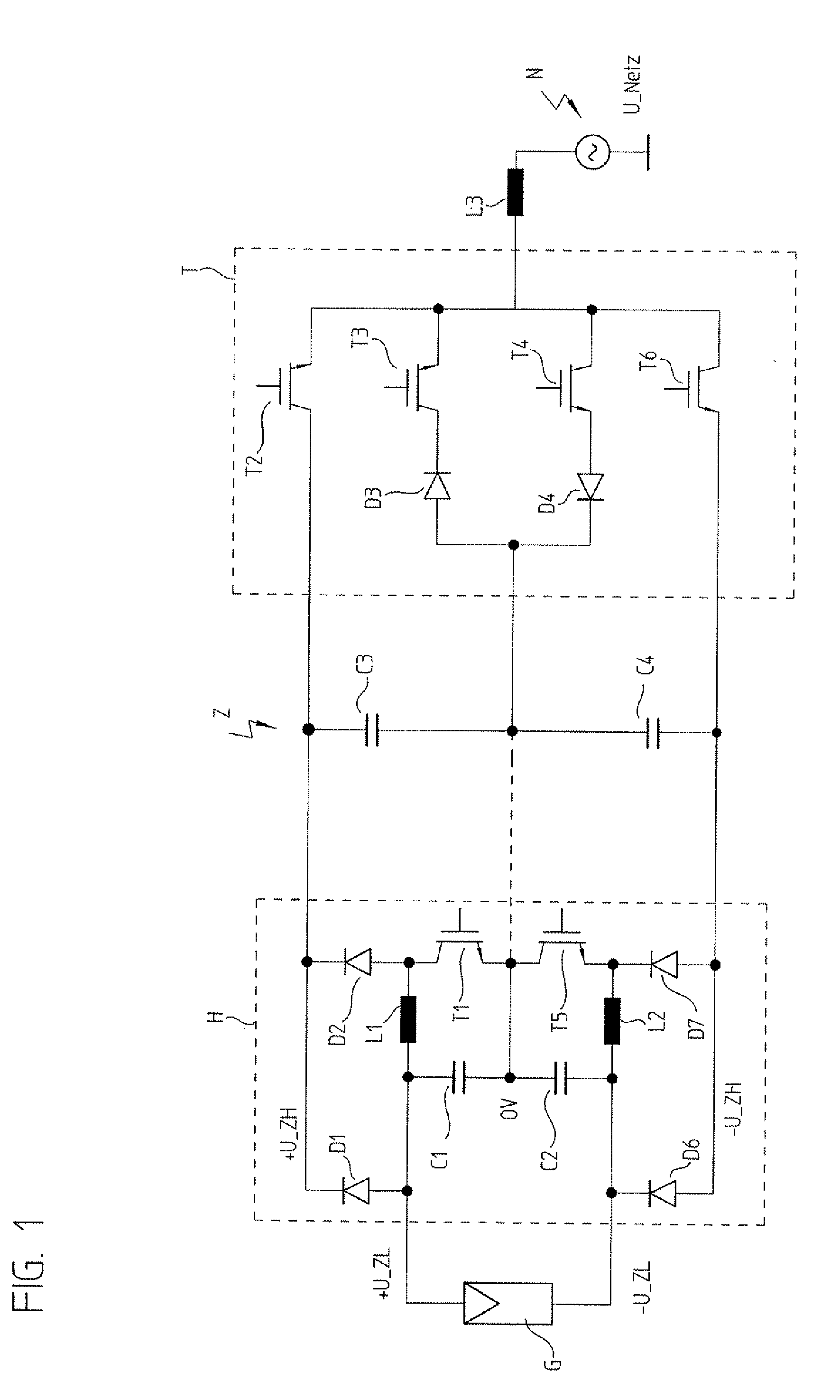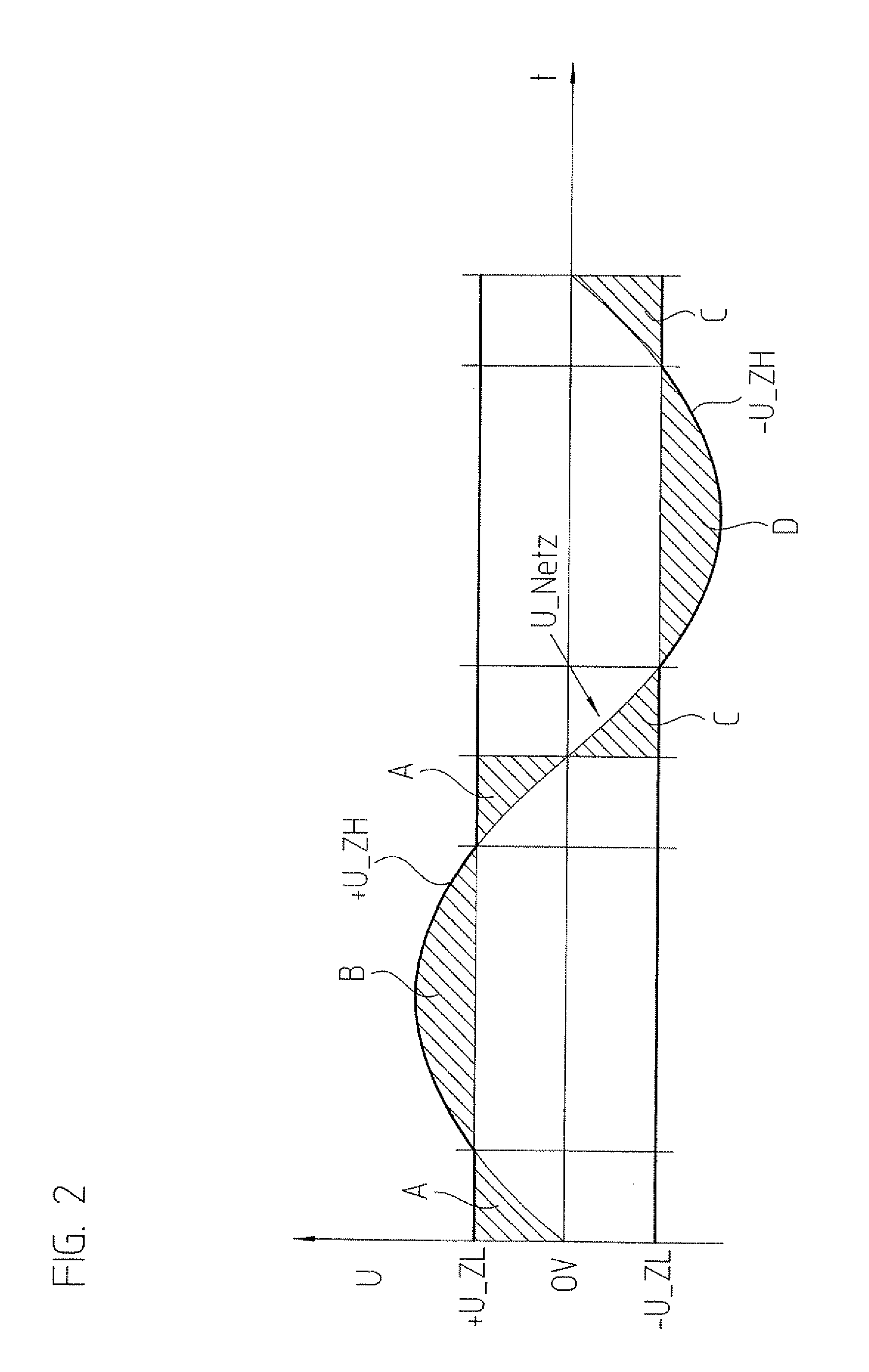Method for operating an inverter, and inverter
a technology of inverter and inverter, applied in the direction of electric variable regulation, process and machine control, instruments, etc., can solve the problems of unnecessary switching loss of step-up converters and step-down converters, and achieve the effect of improving efficiency
- Summary
- Abstract
- Description
- Claims
- Application Information
AI Technical Summary
Benefits of technology
Problems solved by technology
Method used
Image
Examples
Embodiment Construction
[0027]A solar generator G is schematically illustrated in FIG. 1. This solar generator provides a direct voltage, which substantially depends on the current light intensity, but also on other parameters such as the operating temperature or the age of modules M. Two capacitors C1 and C2, which are connected in series and are parallel to generator G, create a mid-voltage level, which is designated here as 0V. This level may be grounded, but a grounding may also be omitted. Without grounding at the connection point of C1 and C2, small voltage ripples occur on generator G, a fact that makes it easier to maintain the operating point at the so-called maximum power point, at which solar generator G is most efficient, or which makes it possible to select the capacitance of the dynamic intermediate circuit to be smaller for the same MPP efficiency.
[0028]The positive voltage level +U_ZL of generator G is connected to a dynamic intermediate circuit Z via a first diode D1. In addition, +U_ZL is...
PUM
 Login to View More
Login to View More Abstract
Description
Claims
Application Information
 Login to View More
Login to View More - R&D
- Intellectual Property
- Life Sciences
- Materials
- Tech Scout
- Unparalleled Data Quality
- Higher Quality Content
- 60% Fewer Hallucinations
Browse by: Latest US Patents, China's latest patents, Technical Efficacy Thesaurus, Application Domain, Technology Topic, Popular Technical Reports.
© 2025 PatSnap. All rights reserved.Legal|Privacy policy|Modern Slavery Act Transparency Statement|Sitemap|About US| Contact US: help@patsnap.com



